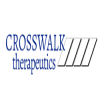An experimental drug from Karuna Therapeutics has succeeded in a second late-stage clinical trial testing it as a potential therapy for schizophrenia.
The trial, which enrolled just over 250 participants, found that after five weeks of treatment, those who were given Karuna’s drug as opposed to a placebo experienced significantly greater reductions on a scoring system used to measure the severity of schizophrenia symptoms.
Specifically, the study’s drug arm showed an 8.4-point larger decline on the scale, which goes as high as 210 points and measures both the “positive” symptoms of schizophrenia, such as excitement and hallucinations, as well as “negative” symptoms like emotional withdrawal.
The results add to a growing body of evidence that Karuna’s drug, known as KarXT, could be a valuable new option for patients living with schizophrenia. It previously hit the main goals of two other mid- to late-stage trials, and Karuna is planning to officially ask the Food and Drug Administration for approval in the middle of this year.
“KarXT has now demonstrated a robust and consistent reduction of symptoms across all three registrational trials, providing a compelling picture of the potential of KarXT in schizophrenia,” said Bill Meury, Karuna’s president and CEO, in a statement Monday. “With these data we are one step closer to a treatment option that could provide the first new mechanism of action to treat schizophrenia in several decades.”
Unlike currently available schizophrenia treatments, which affect the mood-regulating chemicals dopamine and serotonin, KarXT stimulates two members of a protein family that control whether acetylcholine gets released in the brain. Acetylcholine is a neurotransmitter involved with a variety of important processes for brain function.
On Wall Street, analysts see a multibillion-dollar market opportunity for drugs that regulate these so-called muscarinic receptor proteins. In a recent note to clients, Charles Duncan of Cantor Fitzgerald wrote that the consensus among analysts is that, if approved, KarXT could generate around $1 billion in annual revenue by 2026.
Karuna said it’s hoping to launch its drug in the second half of 2024. According to the company, some 3 million people in the U.S. and 21 million more across the world have schizophrenia.
On a call with investors Monday, analysts asked about Karuna's plans to bring KarXT into the European market, to which Meury said partnerships would likely be essential.
"Clearly today, Karuna doesn't have the requisite development and commercial capabilities outside of the [U.S], and so a partner at the right time is going to make a great deal of sense," he said. "That is something that we are evaluating all the time."
Karuna leadership noted, too, that the drug could be useful in treating other diseases. For example, the company is already evaluating it in patients with Alzheimer's disease psychosis, with late-stage data expected in early 2025.
Steve Paul, Karuna's chief scientific officer and head of research and development, said "there are also other opportunities beyond these that we're considering," including bipolar mania, though "right now we have our hands full with very, very big opportunities for this product."
In addition to data on effectiveness, Karuna said KarXT was “generally well-tolerated” in this latest trial, with safety results consistent with earlier testing. The company also highlighted how its drug didn't have the weight gain or extrapyramidal side effects often seen with other schizophrenia treatments.
Across the KarXT and placebo groups, 70% and 50%, respectively, experienced a “treatment emergent adverse event.” Some of most common of these in the drug arm were nausea, indigestion, vomiting, constipation, headache and hypertension. Researchers also observed one serious case of acid reflux, but deemed it not to be related to KarXT.
One-third of the study participants didn’t complete the trial, although only a small subset of those discontinuing testing did so due to an treatment emergent adverse event.
Acetylcholine, aside from its many functions in the brains, also helps to lower blood pressure. Analysts are therefore closely watching the relationship between blood pressure and drugs targeting muscarinic receptors.
On that front, Karuna noted how no patients discontinued the study due to hypertension. Mean blood pressure was similar between the drug and placebo arms, according to Karuna, and there no were instances of trial participants fainting. But, as seen in previous testing, treatment with KarXT was associated with increases in heart rate that diminished in magnitude by the end of the trial.
The company has also said it intends to soon begin an early-stage clinical trial to monitor ambulatory blood pressure in people given KarXT.
Cerevel Therapeutics, a fellow brain drug developer working on a medicine similar to KarXT, completed its own ambulatory blood pressure study late last year. Now known as emraclidine, Cerevel’s medicine is being evaluated in two Phase 2 trials that aim to enroll about 750 participants and are expected to produce results in the first half of 2024.
Shares of Cerevel were up 3% Monday morning, while those of Karuna were down 7%. Analysts at Evercore ISI who cover Cerevel noted how the newly released data show that, at the week five mark, KarXT wasn't significantly better than a placebo on a subscale focused only on those "negative" schizophrenia symptoms.
Cerevel's drug, conversely, appeared to have a greater affect on these symptoms in an early-stage study. The Evercore analysts argued that if this magnitude of effect holds up in additional testing , it could give Cerevel's drug a competitive edge.
Editor's note: This story has been updated with additional detail from a conference call Karuna held Monday morning.






















